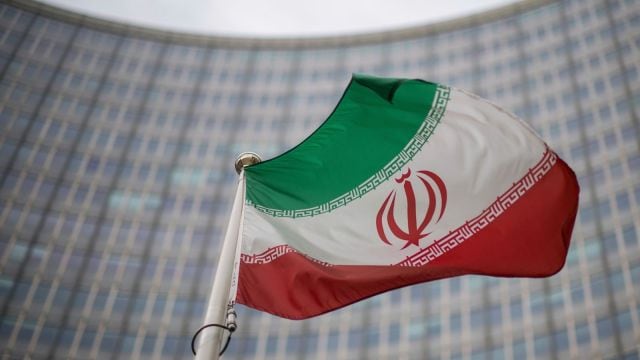Stay updated with the latest - Click here to follow us on Instagram
European nations start process to impose a ‘snapback’ of Iran nuclear sanctions at UN
The countries, known as the E3, said in a statement they had decided to trigger the “snapback” mechanism before it expires in mid-October.
 Iran has warned it would deliver a “harsh response” if sanctions return. (AP)
Iran has warned it would deliver a “harsh response” if sanctions return. (AP)Britain, France and Germany have begun a 30-day process to restore United Nations sanctions on Iran over its nuclear programme, the three governments said in a letter to the UN Security Council seen by Reuters.
The countries, known as the E3, said in a statement they had decided to trigger the “snapback” mechanism before it expires in mid-October. The measure would bring back sanctions that were lifted under the 2015 nuclear deal between Iran and world powers.
“We have decided to take this step before the option runs out,” the E3 said, adding they hoped Iran would make new commitments on its nuclear activities by the end of September that could persuade them to hold off on further action.
The E3 said talks with Iran in recent weeks, including a round in Geneva on Tuesday, did not bring “sufficiently tangible commitments.”
Iran has warned it would deliver a “harsh response” if sanctions return.
The European governments informed US Secretary of State Marco Rubio of their move on Wednesday. Rubio later welcomed the decision, saying France, Britain and Germany had made a clear case of Tehran’s “significant non-performance” of its nuclear commitments. He added that Washington remained available for direct talks with Iran “in furtherance of a peaceful, enduring resolution to the Iran nuclear issue.”
German Foreign Minister Johann Wadephul said the move could mark the beginning of a new diplomatic stage. He called for Iran to fully cooperate with the International Atomic Energy Agency and to make a clear commitment to direct negotiations with the United States.
The E3 said they had offered to delay the snapback for up to six months if Iran allowed full UN inspections and accounted for its enriched uranium stock, which has not been verified since Israeli and US air strikes on Iranian nuclear facilities in June.
The 2015 deal was designed to stop Tehran from developing a nuclear weapon. The United States pulled out of the agreement in 2018 under President Donald Trump. Indirect US-Iran talks held earlier this year ended without results.
- 01
- 02
- 03
- 04
- 05































